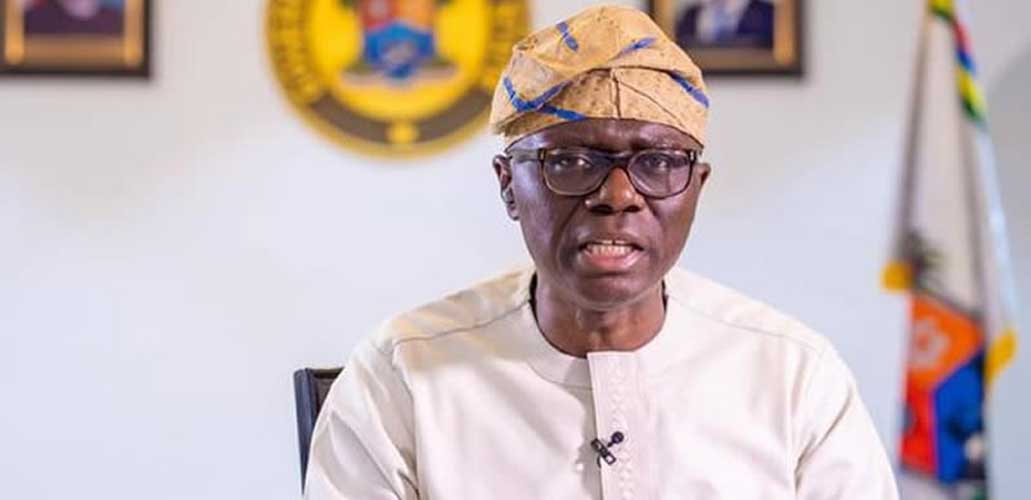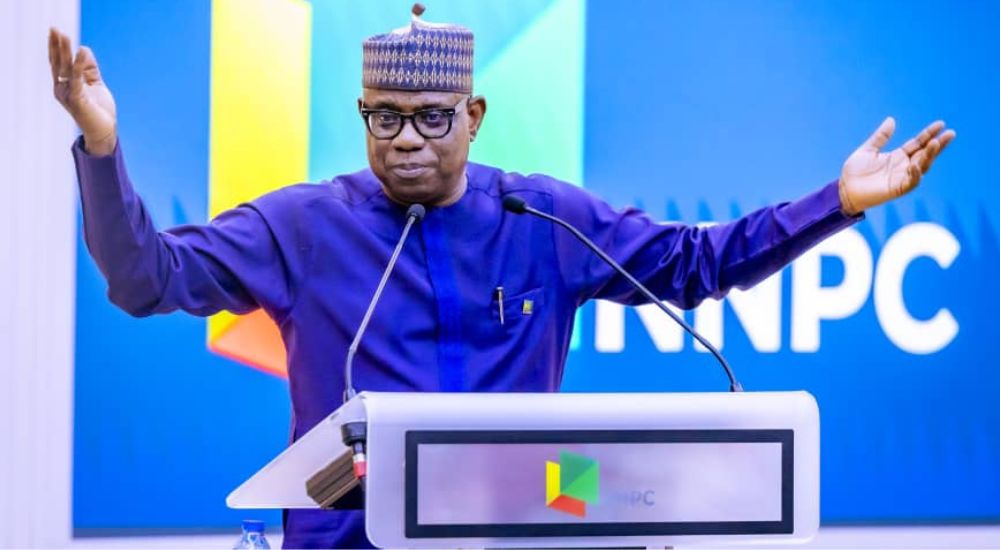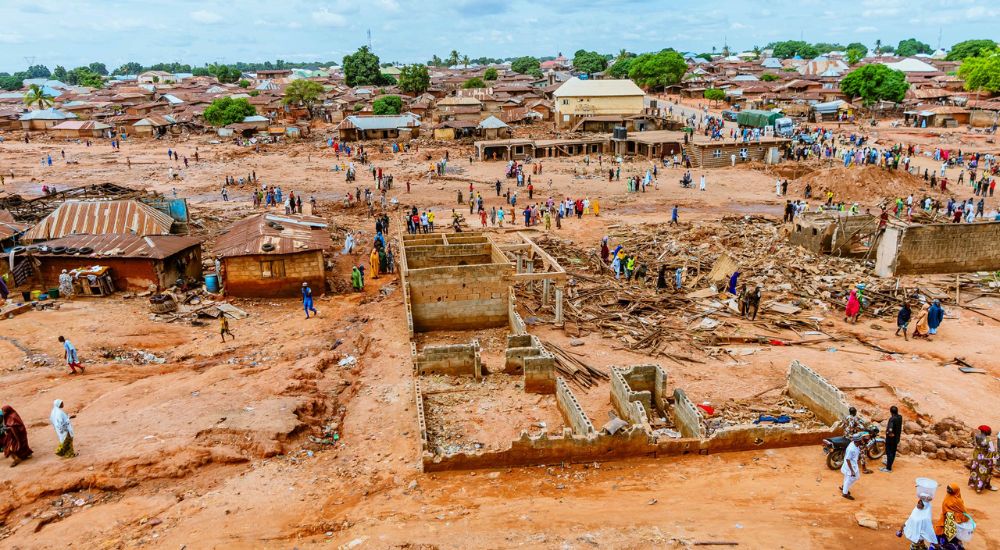Lagos Residents Ask Sanwo-Olu To Fix Infrastructure Before Relaunching Monthly Sanitation

As the Lagos State Government prepares to reintroduce the Monthly Environmental Sanitation Exercise, many residents have urged the government to prioritise fixing the city’s failing waste management infrastructure before enforcing the policy.
The Commissioner for Environment and Water Resources, Mr. Tokunbo Wahab, announced recently that the state is considering bringing back the monthly cleanup programme, which was suspended in 2016 due to the logistical challenge of restricting movement in a fast-paced megacity.
He said a formal relaunch date will be announced once it receives executive approval.
“Lagos is strongly considering reintroducing the monthly environmental sanitation exercise. Once approved by EXCO, the Governor will officially announce the re-launch. It’s long overdue,” Wahab said.
However, several residents say the move is premature and may not yield meaningful results unless the government first addresses critical issues such as inadequate waste bins, inefficient refuse collection systems, and poor drainage infrastructure.
“I think the first responsibility before imposing any rule for people to stay back home on sanitation day is to ensure that proper infrastructure is put in place,” said Toba Odumosu, a Lagos resident.
“Along the stretch of the road, how many waste bins have you seen that people can put their waste in? The refuse system is done through a patrimonial system in which efficiency and effectiveness are not being prioritised.”
Similarly, Wahab Alade, another resident who lives in Oshodi area, questioned the government’s commitment to cleanliness in the absence of basic amenities.
“You can hardly find waste bins on the streets of Lagos. So, how will the government encourage cleanliness if these things are not provided? And when you throw waste on the floor, they will say you have violated the law?”
Nonetheless, not all residents are opposed to the idea. Some believe the sanitation exercise will encourage better environmental practices among Lagosians.
“I subscribed to the view that the government should provide relevant infrastructure before the reintroduction,” said Emmanuel Ideho.
“However, I think the planned reintroduction of monthly sanitation is not a bad idea. It will help instil discipline in residents and make the ecosystem better than it is now.”
Ekene Egwuonwu, who lives in the Ajah area, echoed similar sentiments, saying the monthly effort will raise awareness and help reduce waste-dumping habits that lead to blocked drainages and flooding.
“Monthly environmental sanitation will make the residents of Lagos take the cleaning of their environment seriously, and dumping of refuse in the gutters will reduce, which has caused a lot of damage,” he said.
Ope Ogundele lives in Agege. She defended the practicality of the exercise, arguing that it had worked in the past without affecting most people’s routines.
“Lagos is a dirty state. The monthly environmental sanitation was the only way some people got to clean their environments and it did not stop people from going to their various offices.
“Lagos State Government believes that we all work Monday to Friday, and that is why it is on a weekend. Only business people will be affected, and once it’s 10 a.m., they can go to their various businesses or shops,” she said.
The sanitation exercise, once observed on the last Saturday of every month from 7:00 a.m. to 10:00 a.m., was suspended nearly a decade ago. At the time, the government said the economic and logistical pressures of shutting down a megacity made the practice unsustainable.
A 2016 statement from the then Commissioner for Information and Strategy, Mr. Steve Ayorinde, had noted that the economic climate could no longer support the continued lockdown of the state because of sanitation, while promising fresh reforms in environmental management.
These reforms included harmonised waste billing, new landfill sites, and an Environmental Trust Fund, most of which have yet to be fully implemented.
“After a careful consideration, the State Executive Council has therefore resolved that the present economic climate can no longer support the continued lock down of a mega city like Lagos, when the citizens should be free to engage in commercial and entrepreneurial activities that can promote economic growth and prosperity,” the statement read.
“Government will also accelerate the introduction of fresh reforms through the passage of the new harmonized environmental laws that will drive meaningful changes in areas of harmonized billing, waste management, modern Landfill sites, noise pollution, introduction of an Environmental Trust Fund and an Environmental Advisory Council.
“The Government wishes to reiterate its strong commitment to a clean and secure environment for the benefit of its citizens, and will continue to provide the necessary leadership to meet the environmental challenges of a mega city like Lagos.
“Lagosians and visitors alike are therefore urged to embrace these changes and imbibe a culture of voluntarily maintaining and preserving their environment to create a beautiful and healthy city that we all can be proud of,” it added.
Background To Suspension Of Exercise
In November 2016, the Court of Appeal, Lagos Division, declared the monthly restriction of movement during environmental sanitation exercise in Lagos State illegal and ordered the state government to stop restricting residents’ movement on such days.
The court ruled that the state government had no legal basis to limit anyone’s movement within Lagos State on the grounds of environmental sanitation, as there was no existing law supporting such restrictions.
Justice Ugochukwu Ogakwu, who read the judgement, stated that without a written law in place, the governor’s directive requiring residents to remain indoors between 7:00 a.m. and 10:00 a.m. on the last Saturday of every month was unconstitutional, unlawful, and invalid.
The case was brought before the court by Faith Okafor (Appellant), who challenged the Lagos State Government (Respondent) over the legality of the directive after she was arrested and detained for environmental sanitation offence.
As part of its judgment, the court issued an order restraining the state government and its agencies from further arresting or prosecuting anyone for environmental sanitation offences unless such actions are in strict compliance with constitutional provisions.
“I have arrived at the inexorable conclusion that the appeal is meritorious. The same succeeds and is allowed by me. The Ruling of the lower court in Suit No. M/548/2013: FAITH OKAFOR vs. LAGOS STATE GOVERNMENT & ANOR. delivered on 1st July 2014 is hereby set aside,” Justice Ogakwu declared.
“In its stead and for good order sake, judgment is hereby entered for the Appellant against the Respondents in the following terms: It is hereby declared that the arrest and detention and transportation of the Appellant in the back of a vehicle which is of a metal cage with very little ventilation and light “Black Maria” by officials and/or agents of the 1st Respondent (KAI Brigade) on 25th May 2013 for a purported environmental sanitation offence violates the Appellant’s fundamental rights to respect for the dignity of her person, personal liberty and freedom of movement as provided under Sections 34, 35 and 41 of the Constitution of the Federal Republic of Nigeria, 1999, as amended, and is therefore illegal and unconstitutional.”
Public Frustration Grows Over Urban Decay
But as waste-related challenges surge, including indiscriminate dumping, clogged gutters, and worsening flood risks, many are calling for urgent government intervention.
Social media users and civic voices have joined the debate, highlighting Lagos’s growing reputation for filth and deteriorating urban hygiene.
A viral podcast by Scott Iguma recently criticized the living conditions in the city, despite skyrocketing property prices in areas like Ikoyi and Ikate in Lekki.
“I don’t see reasons why lands in Ikoyi, Ikate are going for N1bn. What’s in the Land? Are there mineral resources there? We flex over it that when you buy land before next year it will be times two.
“Why should it be times two? If a property is going for N800m in a country where we are just 65 years old, what will happen in 2050?,” Iguma said.
“Lagos is smelling. There’re lots of big mosquitoes in Lagos. We’ve open drainages, open gutters.”
Earlier in the year, a National Youth Service Corps member, Ushie Uguamaye (aka Raye), also went viral for calling Lagos a “smelling state,” sparking online debates about urban decay and government accountability.
While the government pushes forward with the sanitation revival, residents are calling for a more holistic approach that balances enforcement with real investments in waste management infrastructure.
It remains unclear how the state government intends to ensure compliance from residents considering the 2016 Appeal Court judgement.
So far, there is no evidence that the government has appealed against the ruling of the appellate court.
Efforts to speak with the Commissioner for Information and Strategy, Mr. Gbenga Omotoso proved abortive as he did not pick his call or respond to messages.
Also, the Director of Public Affairs at the state Ministry of Environment and Water Resources, Mr. Kunle Adeshina did not respond.
Lagos Residents Ask Sanwo-Olu To Fix Infrastructure Before Relaunching Monthly Sanitation is first published on The Whistler Newspaper





